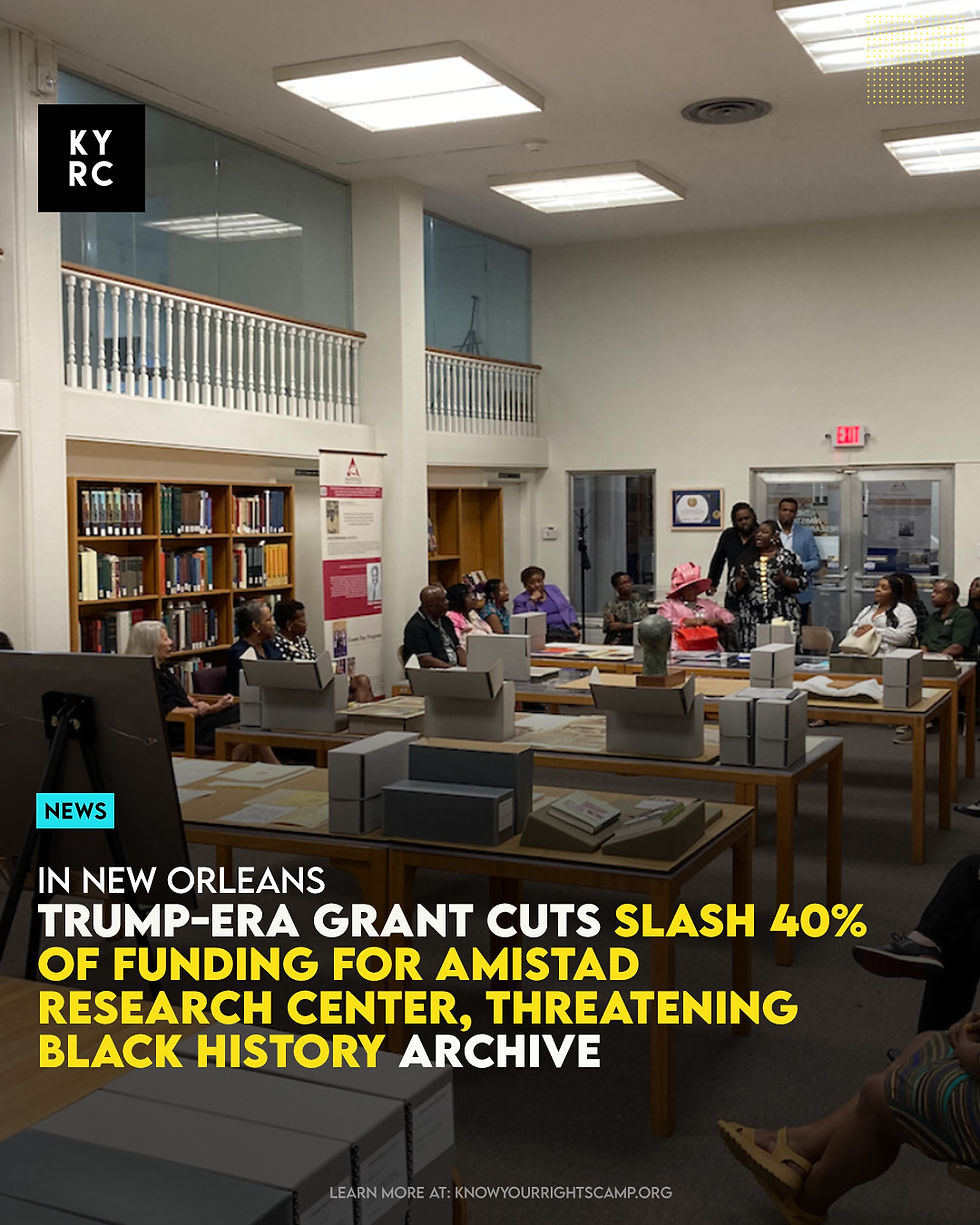Trump-Era Grant Cuts Slash 40% of Funding for Amistad Research Center, Threatening Black History Archive
- ural49
- Aug 18, 2025
- 2 min read

The Amistad Research Center, a vital institution preserving Black history in the U.S., is facing a major financial crisis after the Trump administration abruptly cut four of its federal grants. Founded in 1966 and located at Tulane University in New Orleans, the archive holds more than 15 million documents, artworks, and oral histories chronicling African American life and activism, including works by Jacob Lawrence and manuscripts by Zora Neale Hurston.
The grant cuts made up about 40% of Amistad’s $1.5 million annual budget. Executive Director Kathe Hambrick said the losses forced them to lay off half their staff, close reading rooms to researchers, and suspend new acquisitions. “We’ve had to make difficult decisions. But I refuse to let this institution die on my watch,” Hambrick said.
The center has launched a $1 million fundraising campaign to stay afloat and restore operations. Hambrick sees the grant cuts as politically motivated: “This wasn’t just budget tightening. We were targeted for what we represent—Black and LGBTQ+ history.”
The Institute of Museum and Library Services (IMLS), which oversaw the grants, initially indicated that Amistad had failed to meet administrative criteria. But a lawsuit revealed the agency didn’t clearly explain its decision. Though a federal judge issued a temporary injunction blocking any closure orders, the damage had already impacted the center’s day-to-day functioning.
Historians and preservationists are sounding the alarm. “Amistad is one of the most important repositories of African American history in the country,” said UCLA historian Brenda Stevenson. “To lose it would be a national tragedy.”
This crisis is part of a broader trend. Other institutions focused on African American and marginalized histories—including the Pauli Murray Center and the Whitney Plantation—have also experienced funding rollbacks under Trump’s leadership. Many see this as part of a political effort to suppress historical narratives centered on racial justice.
Despite these setbacks, Hambrick remains defiant: “We’ve survived hurricanes, financial downturns, and neglect. We will survive this too. But we need the public’s support now more than ever.” The Amistad Center continues to serve as a crucial guardian of stories that might otherwise be erased.
Link: Washington Post



Comments